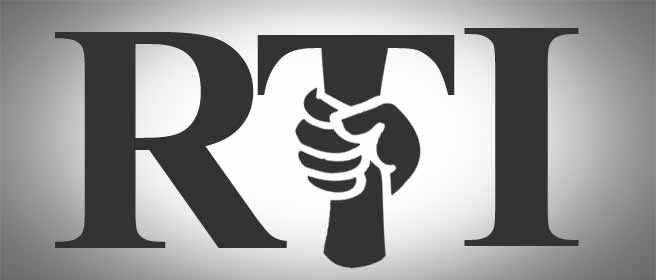
A democratic government is supposed to reflect the needs and desires expressed by the public. However, public will not be in a position to express their needs or voice their opinions unless proper information is made available to them. In a welfare state where governments are increasingly involved in multiple activities to cater to different sections of the society, these governments themselves have become the most important repository of information and unless a mechanism is established to access this information the citizens can be subjected to arbitrary treatment by the government. Upholding the essence of democracy the Indian Government passed the Right to Information Act in the year 2005 for the purposes of bringing ‘transparency and accountability in the working of every public authority’ and to ‘secure access to information under the control of public authorities’. (1)
Under the provision of this act an application for request of information from any public authority regarding any matter can be made for a nominal fee provided the said request does not fall under the exceptions provided under the act one of which is section 8(1) (j). Section 8(1)(j) of RTI Act,2005 states as ”Notwithstanding anything contained in this act , there shall be no obligation to give any citizen information which relates to personal information the disclosure of which has no relationship to any public activity or interest , or which would cause unwarranted invasion of the privacy of the individual unless the Central Public Information officer or the State Public Information Officer or the appellate authority , as the case may be , is satisfied that the larger public interest justifies the disclosure of such information.”
The above section has been incorporated in the act to balance the fundamental right to information with the fundamental right to privacy. It is to be noted that this section is specifically concerned about “the privacy of individual and no other bodies or institutions. It cannot be applied when the information concerns institutions, societies, organizations or corporate. This shows that privacy to some extent could only be maintained by an individual and no other body could avail of this exception.
The need for transparency is emphasized to detect corruption and make government officials accountable for it. By the inclusion of the exception under section 8(1) (j), the information regarding bureaucrats and other government officials can be withheld from the public under the garb of protection of right to privacy. In one RTI application seeking information of the assets of the Chief Election commissioner was rejected on the grounds of personal information.(2) This sets a precedent that any information regarding asset disclosure of government officials is sought will be rejected unless ‘larger public interest’ can be shown.
This section might defeat the purpose of detecting and curbing corruption because of the ambiguities regarding the meaning of personal information and the concept of ‘larger public interest’ or ‘unwarranted invasion of privacy’. If disclosure of information such as assets of the public servants, which are routinely collected by the public authority and routinely provided by the public servants falls under the provisions of S.8 (1)(j) then it may well be said that the definition of privacy will be subjected to the whims and fancies of the commission which puts the idea of bringing in more transparency and accountability in government activities into murky waters.

